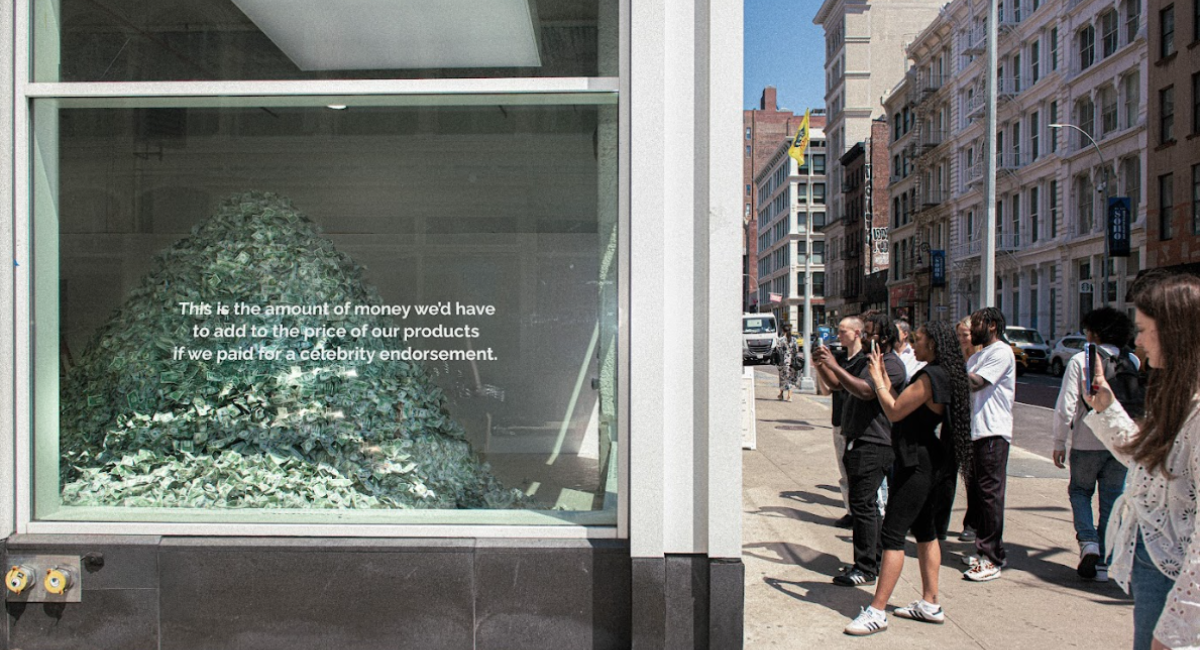Uncommon and The Ordinary defy A-Lister endorsements, but is it authentic?

An installation from The Ordinary has sparked much online commentary about the necessity, or otherwise, of A-lister advertising.
The Ordinary x Secret Ingredient campaign takes the form of an immersive pop-up campaign called ‘The Secret Ingredient’, which can be seen in the SoHo neighbourhood of New York City.
The campaign aims to educate consumers about the true costs of celebrity endorsements in skincare. The pop-up, running from April 25 to 27, features several interactive exhibits, photo moments, and one-on-one discussions with scientists.
The campaign highlights how celebrity endorsements can inflate product prices by 30-100% or more, with some A-list stars charging up to $10m for a single post. The Ordinary's goal is to show consumers the impact of these inflated prices and to challenge the industry to rethink the value of marketing
Amy Bi, VP of brand at The Ordinary, stated that the brand acknowledges the value of celebrities but believes they shouldn't contribute to the rising prices of essential skincare. The campaign is designed to provide a visceral experience that visually unpacks the true cost of celebrity endorsements in beauty.

Is the campaign authentic?
An interesting aspect of commentary on this pop-up is posters namechecking Uncommon as endorsing the ethos of the campaign. The prominence of the agency has made this inevitable, yet that needn’t always be the case.
At any rate, as agencies go, Uncommon is certainly associated less with celebrity endorsements than many, with its campaigns usually opting to focus on brand messaging in a more ‘purist’ form.
The Ordinary, which is actively seeking to endorse the message of the campaign, is similarly authentic in its messaging here, given that it's a brand that’s always been obsessively minimal in its design, ingredient choice and marketing sentiment.
The wider question, of course, is whether A-lister endorsements are necessary in today’s day and age? In the case of The Ordinary, certainly not, as averting such associations has been very much its USP as a brand.
But as to the economics behind such decisions: well, it’s complicated. Shelling out millions on a familiar face needn’t necessarily be a bill footed by the consumer, in the same way that hiring a CEO on £1m a year makes economic sense if they triple profits, compared to hiring a CEO on £500,000 who merely doubles profits.
If a celebrity endorsement does indeed boost income for any brand, this allows for greater economies of scale, which can theoretically keep prices low, or certainly keep a brand buoyant financially.
The debate is an interesting one, however. Celebrity endorsement is certainly morphing in terms of strategy. A-listers are increasingly depicted as more ‘relatable’ or ‘self-parodying’. The landscape is changing, and yet celebrities will always appeal to certain subsets of consumers. Whether it suits a given brand at a given moment is contextual on a case-by-case basis.
If you enjoyed this article, you can subscribe for free to our weekly email alert and receive a regular curation of the best creative campaigns by creatives themselves.
Published on:




